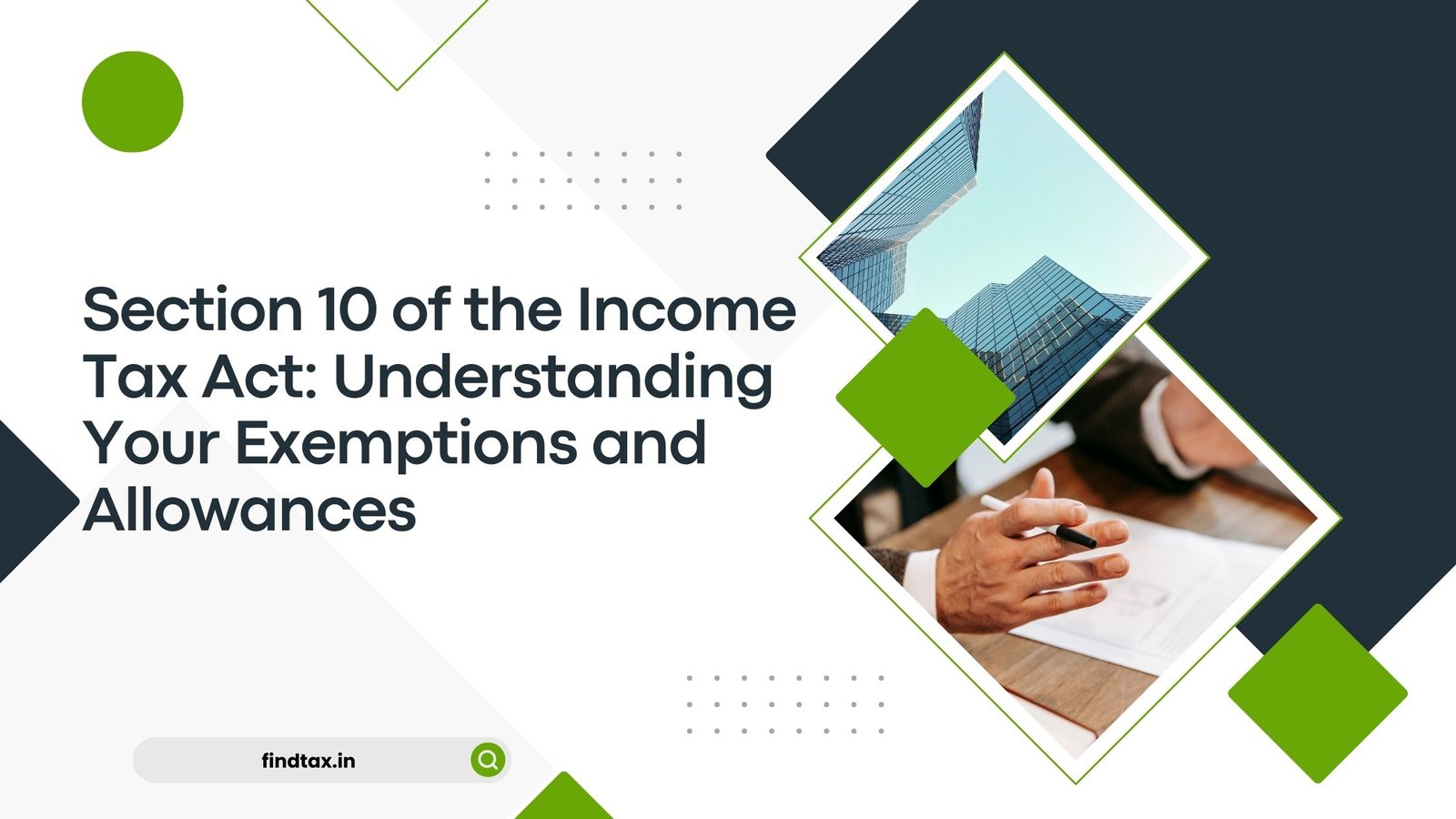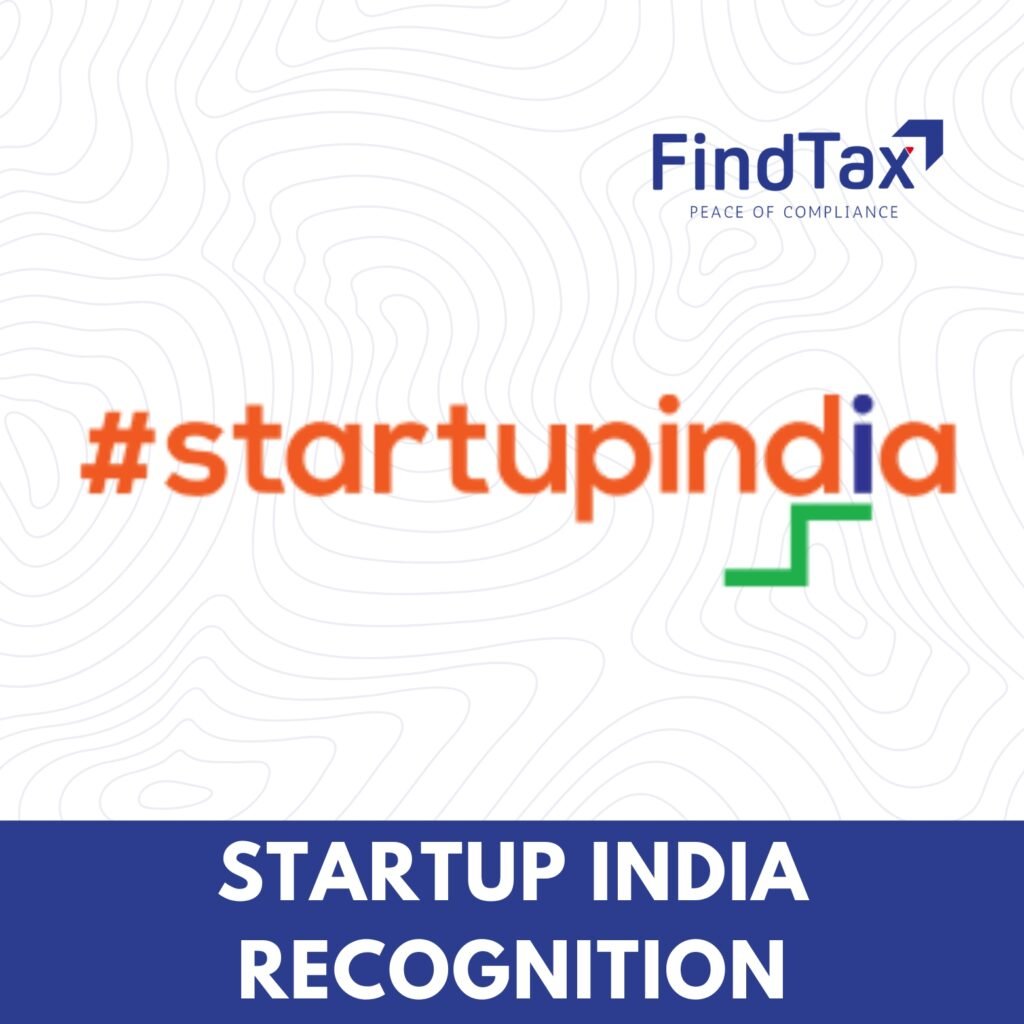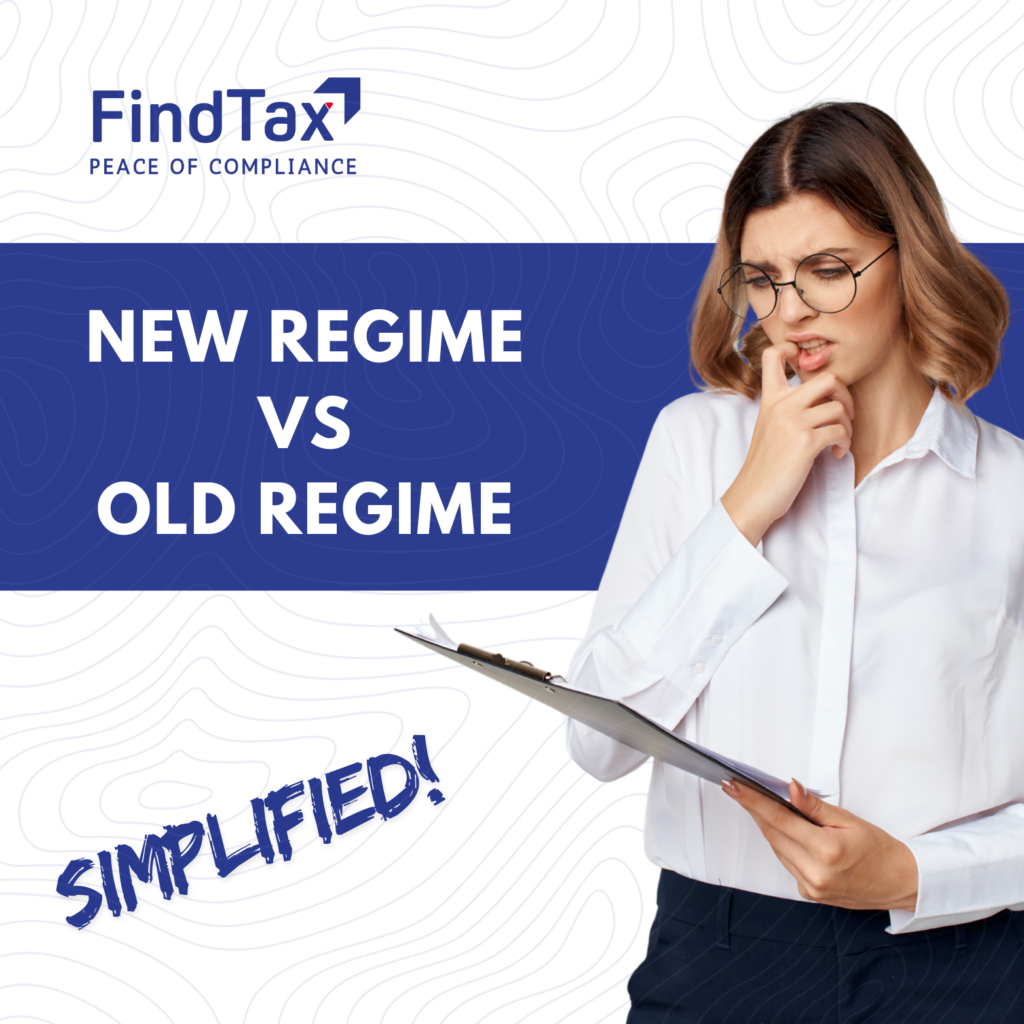
Hello Folks!!!
Searching for Section 10 of Income Tax Act?
If yes, then you’ve come to the right place!
So, let’s begin!
Entire Section 10 exemptions are available in the Old Tax Regime.
Only few sections are available in case of New Tax Regime.
As per the Income Tax Act, 1961 there are certain exemptions to reduce the tax liability. Section 10 of the Income-tax Act, 1961 outlines these exemptions along with the specific terms and conditions which are required to qualify to avail such exemptions. Here is the detailed discussion.
What is Section 10 of the Income Tax Act?
While calculating an individual’s tax liability, certain income sources are excluded from the total income calculation. Section 10 of the Income-tax Act, 1961, outlines all the exemptions that taxpayers can claim when paying income tax.
What are Exemptions Under Section 10?
Here is a list of exempted incomes under Section 10:
Section 10(13A) of the Income Tax Act
Section 10(13A) of the Income Tax Act pertains to House Rent Allowance (HRA). This provision allows the portion of your salary allocated for house rent and accommodation expenses to be exempt from taxation.
However, there are exceptions specified in Section 10(13A) Rule 2A. The exemption is granted for the lowest of the following amounts:
- The actual HRA received
- 50% of [basic salary + DA] for those residing in Delhi, Mumbai, Chennai, or Kolkata
- 40% of [basic salary + DA] for those residing in other cities
- Actual rent paid minus 10% of [basic salary + DA]
Under Section 10(13A) of the Income Tax Act, House Rent Allowance (HRA) exempts the following expenses from income tax:
- Rent paid: The actual rent paid by the taxpayer for their residential accommodation.
- Brokerage or commission: Payments made to a real estate agent or broker for obtaining the rented accommodation.
- Maintenance charges: Costs incurred for maintaining the rented accommodation, such as society maintenance fees or charges for common facilities.
- Lease agreement costs: Expenses related to preparing and registering the lease agreement, if applicable.
It is essential to understand that only the costs directly associated with the rental property occupied by the taxpayer qualify for exemption under Section 10(13A) of the Act.
Section 10(5) of the Income Tax Act
Section 10(5), which pertains to leave travel allowance (LTA) exemptions, applies to individual taxpayers. The LTA exemption covers only domestic travel expenses such as airfare, train fares, or bus fares incurred by the employee. It does not include other costs like local transportation, sightseeing, hotels, or food. Additionally, the exemption is restricted to the LTA provided in your CTC by your employer. For any queries, Contact us!
Is Leave Encashment Exempt From Income Tax?
Leave encashment received during employment is fully taxable and is considered part of ‘Income from Salary.’
However, if you are a government employee (State or Central), your leave encashment income is not taxable upon resignation or retirement.
For private sector employees, leave encashment income upon resignation or retirement is partly exempted. Nevertheless, exemptions are available under Section 10(10AA) of the Income Tax Act. Any amount exceeding the exemptions will be taxed according to your income tax slab.
- The average salary over a span of 10 months is taken into account. This includes both the basic salary and dearness allowances. Additionally, any commission earned is factored in. The 10-month salary considered is based on the payments received in the 10 months leading up to the employee’s retirement or resignation.
Section 10(14) of the Income Tax Act
This section grants exemptions for expenses related to your employer’s business activities. These include costs for conveyance, travel, research allowances, and other similar expenses, provided they are genuinely incurred for the specified purposes.
Section 10(10) of the Income Tax Act:
Gratuity income received by government employees is exempt from tax. For private sector employees, the exemption depends on whether they are covered under the Payment of Gratuity Act.
Internet Allowance Exemption under Section 10:
Under Section 10(14), internet allowance provided by your employer is exempt from taxation.
Food Allowance Exemption under Section 10:
Section 10(14) also provides a tax exemption of Rs. 26,400 per year for food allowance, based on the assumption of two meals a day and 22 working days per month.
Section 10(10A) of the Income Tax Act:
Government employees receive tax exemptions on the lump-sum amounts they get from accumulated pensions under this section.
Section 10(10D) of the Income Tax Act:
This section grants exemptions for income received from a life insurance policy or bonus. However, the following types of insurance policies are not eligible:
- Life insurance policies for a specially-abled dependent family member.
- Key man insurance policies.
- Insurance policies where the premium amount exceeds 10% of the sum assured.
Section 10(11) of the Income Tax Act
Additionally, this section offers exemptions on interest earned from a provident fund when you resign or retire.
Section 10(26) of the Income Tax Act
If you belong to a Scheduled Tribe in Tripura, Nagaland, Mizoram, Manipur, or Arunachal Pradesh, you are eligible for tax exemptions on income earned from any source within these states, as well as on income from dividends or interest on securities, under Section 10(26) of the Income Tax Act.
Section 10(34) of the Income Tax Act
This section provides exemptions for dividends earned from investments in an Indian company, but only up to Rs. 10,000. Any amount exceeding this limit is subject to tax.
Section 10(26AAA) of the Income Tax Act:
If you are a Sikkimese individual earning income from any source in Sikkim or through dividends or interest on securities, this portion of your income is exempt from tax under Section 10(26AAA).
Section 10(38) of the Income Tax Act:
Long-term capital gains from selling equity shares of an equity-oriented mutual fund are exempt from Income Tax. However, the Securities Transaction Tax (STT) must still be paid.
Section 10(23C) of the Income Tax Act:
Educational or medical institutions with annual receipts not exceeding Rs. 5 crore are eligible for exemption under Section 10(23C) of the Income Tax Act.
Section 10(37) of the Income Tax Act:
This section provides exemptions for capital gains resulting from the compulsory acquisition of urban agricultural land, provided the following conditions are met:
- The land must have been used for agricultural purposes for at least 2 years prior to the sale date.
- The compulsory acquisition scheme must be approved by the central government or RBI.
Section 10(35) of the Income Tax Act:
Income earned from the sale of specified mutual fund units is exempt. Note that this applies only to income earned until 31st March 2020.
How Do I Claim Section 10 Exemptions On My Taxes?
To claim an exemption under Section 10, you need to file an income tax return. Since these exemptions are income-based, you must disclose the income earned and the applicable exemptions.
Now that you understand the benefits of Section 10, you can utilize them to achieve tax relief. However, it is advisable to consult a tax professional before filing a claim under this section.
FAQ’s
Is House Rent Allowance fully exempt from taxation?
No, under Section 10(13A) of the Income Tax Act, only a portion of the HRA is exempt, subject to certain limitations. For more details, click here.
What does Section 10(9) exempt?
Section 10(9) exempts the income of family members of foreign employees working under the Cooperative Technical Assistance Program.
What does Section 10(10C) exempt?
Section 10(10C) provides an exemption for income received from voluntary retirement, up to a maximum of Rs. 5 lakh.
What is the eligibility criteria for Section 10(10D)?
To qualify for exemptions under Section 10(10D), you must have a life insurance policy. The amount received upon its maturity, including any bonus, is exempt from tax.
Is the amount received from a Sukanya Samriddhi Account at maturity exempt?
Yes, the amount received upon maturity of a Sukanya Samriddhi Account is fully exempt from tax, with no limits.
What types of incomes are exempt under Section 10 of the Income Tax Act?
Section 10 provides exemptions for various types of incomes, including House Rent Allowance (HRA), leave travel allowance, income from gratuity, voluntary retirement benefits, life insurance maturity proceeds, and income from certain provident funds, among others.
Who qualifies for exemptions under Section 10(10A)?
Government employees are eligible for tax exemptions on the lump-sum amounts received from accumulated pensions under Section 10(10A). Private sector employees have different provisions under this section.
Are the proceeds from a life insurance policy exempt under Section 10(10D)?
Yes, the proceeds from a life insurance policy, including the maturity amount and any bonuses, are exempt under Section 10(10D), provided the policy meets certain criteria such as the premium amount not exceeding 10% of the sum assured.
Is leave encashment income taxable under Section 10?
Leave encashment received during employment is fully taxable. However, for government employees, leave encashment received at the time of resignation or retirement is fully exempt. For private sector employees, exemptions under Section 10(10AA) apply, and it is partially exempted.
What is the exemption limit for voluntary retirement benefits under Section 10(10C)?
Under Section 10(10C), income received from voluntary retirement is exempt up to a maximum limit of Rs. 5 lakh, subject to certain conditions specified in the Income Tax Act.

